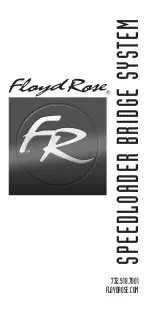
Programming Commands 39
SR620 Universal Time Interval Counter
LOCL j
The LOCL command sets the RS232 local/remote
function. If j = 0 the SR620 is local, if j = 1 the
SR620 will go remote, and if j = 2 the SR620 will
go into local lockout state. The states duplicate
the GPIB local/remote states: in the LOCAL state
both command execution and keyboard input are
allowed. In the REMOTE state command
execution is allowed but the keyboard and knobs
are locked out except for the "LOCAL" key , which
returns the SR620 to the local state. In the
LOCAL LOCKOUT state all front panel I/O is
locked out including the "LOCAL" key.
WAIT (?) j
The WAIT command sets the RS-232
transmission delay between characters. This is
useful for slower computers and terminal
programs. The delay is equal to 2ms times the
parameter j (0 <= j <=25).
Status Reporting Commands
(See tables at the end of the Programming
section for Status Byte definitions.)
*CLS
The *CLS common command clears all status
registers. This command does not affect the
status enable registers.
*ESE (?) j
The *ESE command sets the standard event
status byte enable register to the decimal value j.
*ESR? {j}
The *ESR common command reads the value of
the standard event status register. If the
parameter j is present the value of bit j is
returned. Reading this register will clear it while
reading bit j will clear just bit j.
*PSC (?) j
The *PSC common command sets the value of the
power-on status clear bit. If j = 1 the power on
status clear bit is set and all status registers and
enable registers are cleared on power up. If j = 0
the bit is cleared and the status enable registers
maintain their values at power down. This allows
the production of a service request at power up.
*SRE (?) j
The *SRE common command sets the serial poll
enable register to the decimal value of the
parmeter j.
*STB? {j}
The *STB? common query reads the value of the
serial poll byte. If the parameter j is present the
value of bit j is returned. Reading this register has
no effect on its value as it is a summary of the
other status registers.
EREN (?) j
The EREN command sets the error status enable
register to the decimal value j.
ERRS? j
The ERRS? query reads the value of the error
status byte. If the parameter j is present the value
of bit j is returned. Reading this register will clear
it while reading bit j will clear just bit j.
STAT? j
The STAT? query reads the value of the time
interval counter status byte. If the parameter j is
present the value of bit j is returned. Reading this
register will clear it while reading bit j will clear just
bit j.
TENA (?) j
The TENA command sets the time interval counter
status enable register to the decimal value j.
Calibration Commands
NOTE
: These commands are primarily intended
for factory calibration use and should never be
needed during normal operation.
Incorrect use
of some of these commands can destroy the
calibration of the SR620.
$TAC? j
The $TAC? query reads the value of the time-to-
amplitude converters. The parameter j = 0 refers
to the start channel, while j = 1 refers to the stop
channel.
Содержание SR620
Страница 2: ...SR620 Universal Time Interval Counter...
Страница 6: ...iv Table of Contents SR620 Universal Time Interval Counter...
Страница 8: ...vi Safety and Preparation for Use SR620 Universal Time Interval Counter...
Страница 12: ...x Specifications SR620 Universal Time Interval Counter...
Страница 58: ...42 Programming Commands SR620 Universal Time Interval Counter...
Страница 72: ...56 Programming Examples SR620 Universal Time Interval Counter...
Страница 76: ...60 Troubleshooting Tips SR620 Universal Time Interval Counter...
Страница 82: ...66 Performance Test SR620 Universal Time Interval Counter...
Страница 90: ...74 Calibration Procedure SR620 Universal Time Interval Counter...
Страница 102: ...86 Circuit Description SR620 Universal Time Interval Counter...
Страница 124: ...108 Parts List SR620 Universal Time Interval Counter...
















































